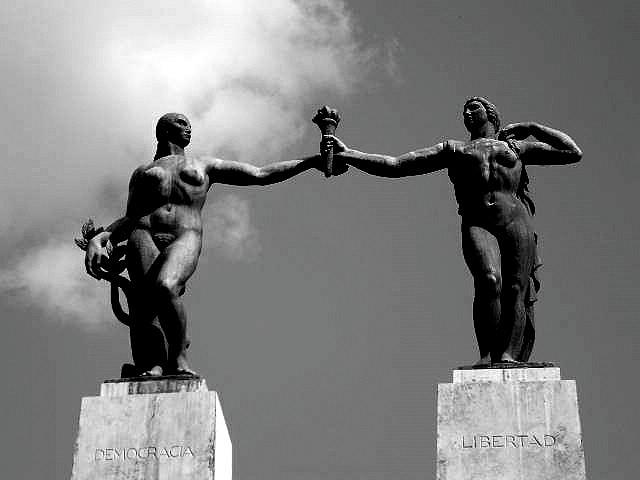[please note – this post is part of a collaborative project between Social Theory Applied and the staff and pupils of Hutchesons’ School in Glasgow – but feel free to read and contribute even if you’re not directly involved]
What do we mean by social justice? It’s an important question to ask – the way it’s used as a rallying cry/catch-all phrase (at least on social media) you would think that some level of agreement has been reached regarding its meaning. It hasn’t. That’s the bad news. The good news is that the world can easily accommodate varied and sometimes conflicting definitions of social justice. And so it should, given that conflict is never far away from enactments of social justice - see for examples, the likes of (a random selection) Black Lives Matter, the struggle for transgender acceptance, anti-gentrification protests.
This conflict over the meaning of social justice also makes sense when you look at the company it keeps. Concepts such as ‘fairness’, ‘equality’ and ‘rights’ are never too far away from discussions of justice in whatever form, and these are all concepts that have seen their fair share of disagreement over the years. These inter-connections and associated disagreements can be witnessed in a variety of approaches to social justice, including the work of one of the major intellectuals in justice theory, John Rawls, whose 1971 book A theory of justice, is considered a cornerstone of the field. In this and subsequent works he developed and revised two principles of justice:
Liberty Principle - which establishes equal basic liberties for all citizens
Difference principle - The Difference Principle regulates inequalities, only permitting inequalities that work to the advantage of the worst-off.
[You will find a bit more detail on these principles here, or better yet, check out the You Tube video below].
Rawls’ work can appear dry and unengaging to those not familiar with such work, but I would recommend sticking with him as repeated reading brings intellectual reward. He was also happy to revise his theory, for example in Justice as fairness: a restatement. This is always a good sign. It should be noted here that, while Rawls is a key figure in justice theory, he doesn’t have a monopoly on the field. Implied conceptions of justice can be found across the theoretical spectrum, but others who have explicitly devised theories of justice include the likes of Martha Nussbaum, Amartya Sen, Nancy Fraser and Axel Honneth. The question of justice has been a core concern of all these social theorists, who view this question as central to the objectives of theory-driven approaches to understanding society. Most importantly they don’t agree on what social justice means and have their own separate debates to prove it – see the Debate over the capabilities approach (about Sen and Nussbaum) and the Debate over restribution and recognition (about Fraser and Honneth).
What all these different approaches illustrate, including that of Rawls, is that ideas around social justice are there to be debated and argued over, even discarded. The contentious nature of justice is best illustrated by positioning it alongside the notion of freedom (or liberty). Justice and liberty – two of the cornerstones of the French revolution, are not the most comfortable of bedfellows at the best of times, and Max Horkheimer, the founder of the Frankfurt School of Critical Theory was correct when he issued his statement ‘the more justice, the less freedom’ (see this previous blog post). Hence the conflict at the heart of so many social justice movements.
There are other approaches that critique social justice approaches as a category – see for example the arguments around an ethics of care that have been developed by feminist thinkers such as Carol Gilligan. This is well worth checking out also. But hopefully you get the sense that the struggle for justice extends to its own definition.
Questions for discussion:
How would you define social justice? What elements would you include in a definition and why?
Are there any particular social justice movements you identify with, or value more than others? See if you can explain your reasoning for this.
Suggested reading:










